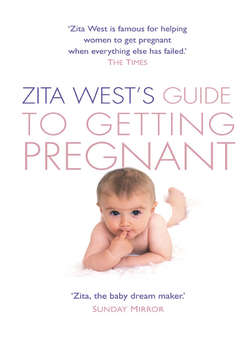Читать книгу Zita West’s Guide to Getting Pregnant - Zita WEST, Zita West - Страница 21
Women in their late thirties/early forties
ОглавлениеThis age group accounts for a large percentage of the women I see. Often they are career women who have got used to high degrees of control over their environment, and are in uncharted territory when they can’t control their own fertility.
Although some come just for a pre-conception ‘check’, many have been trying for a while. Some have been down the IVF route unsuccessfully; often there is a history of ‘unexplained’ infertility or recurrent miscarriage, or some anxiety about their fertility cycle. Some couples are taking ovulation-stimulating drugs such as Clomid, or doing intrauterine insemination, and want to improve the chances of conception by supporting and preparing their bodies. Some have been recommended for egg donation without having had a full, clinical work-up or assessment. Very often they have been to only one clinic and were told they have had a poor response and no eggs. Going to another clinic might have meant a better result. In short, there are many factors to consider.
If you have been trying for a while:
• Have you had a diagnosis and have you both been tested?
• How is it affecting you emotionally?
• Are you nagging or resentful of each other?
• Is your relationship starting to suffer?
• Are you losing the balance in your life?
• Are you giving up everything?
• Has your sex life been affected?
• Are you ready to move on to assisted fertility?
The starting-place for these couples has to be an in-depth analysis and discussion with the couple about where they currently feel themselves to be, covering any anxieties or misunderstandings. Without this, there isn’t an adequate baseline from which to work. Some couples, especially those who have been round the infertility block a few times, feel that this is unnecessary, as they have already had many medical interviews and tests. In my experience, however, many clinics are not thorough enough when it comes to identifying what the problem might be. Often I find that couples have not even been asked how frequently they have sex! All the medical tests in the world will make no difference if a couple are having sex only twice a month. If the length of a woman’s cycle hasn’t been worked out properly, any chance of getting the timing of ovulation right is unlikely. As I mentioned earlier, a lot of couples get fast-tracked into assisted conception without a proper assessment. I am sure that this is key to the success we have in helping couples achieve happy, healthy pregnancies.
